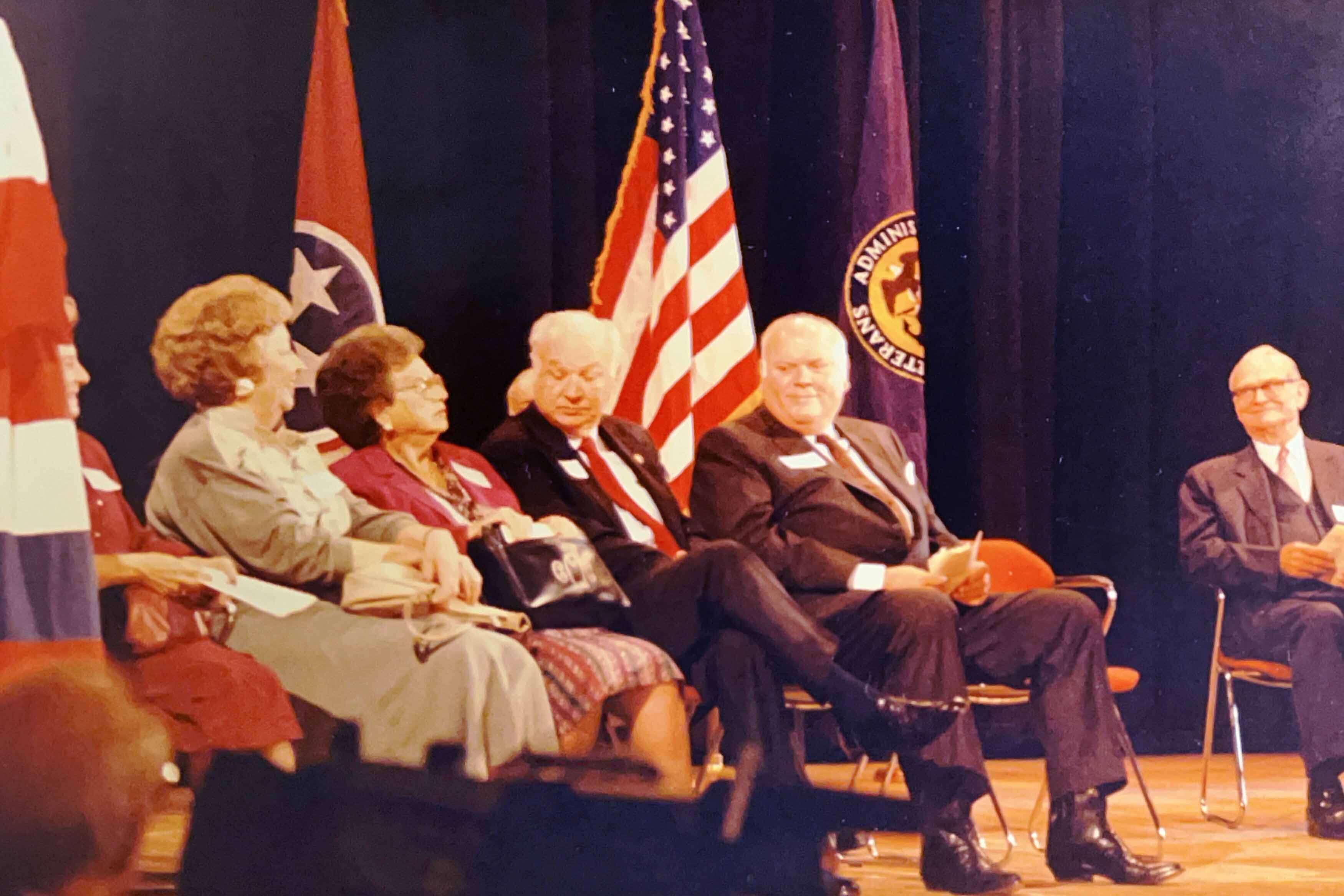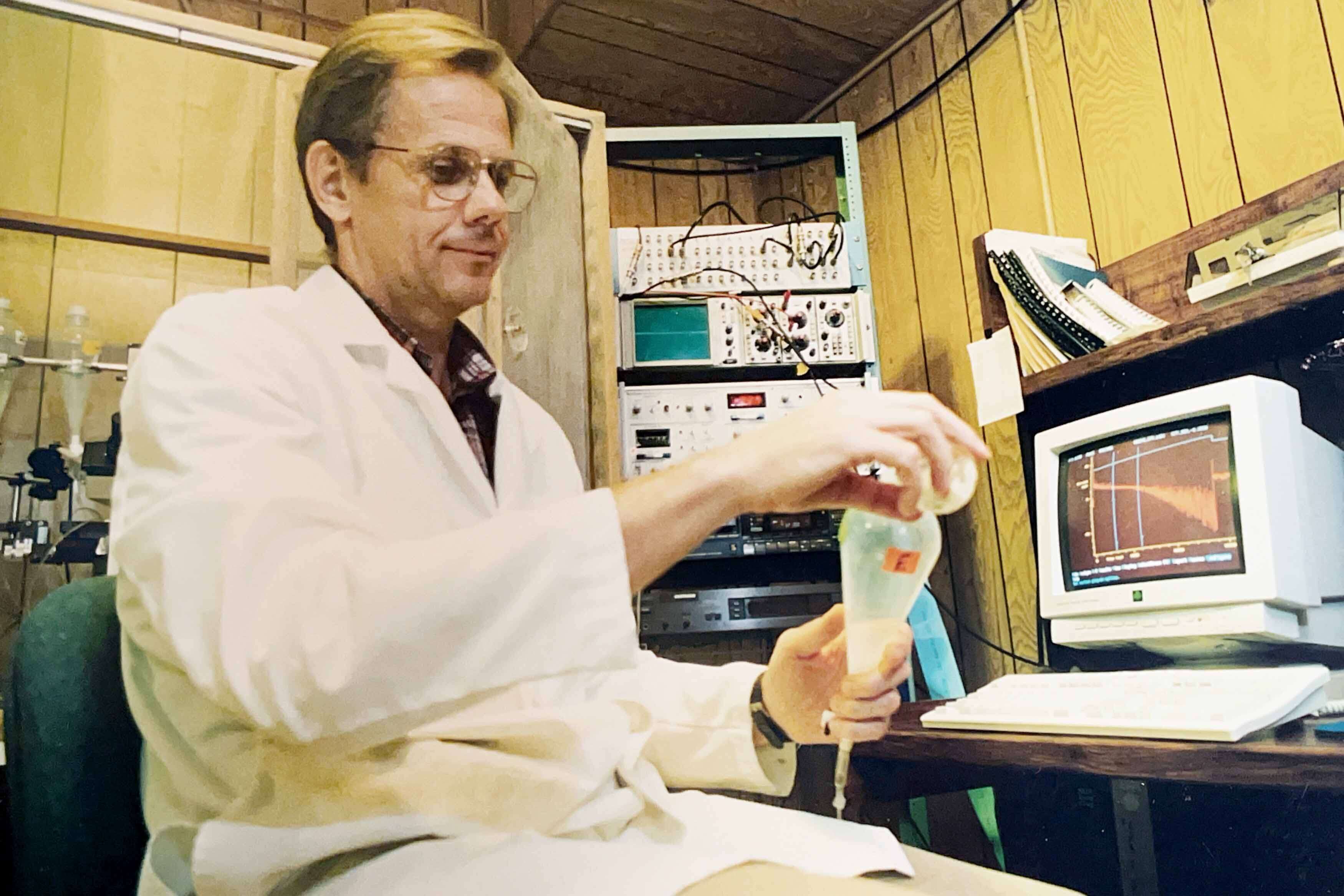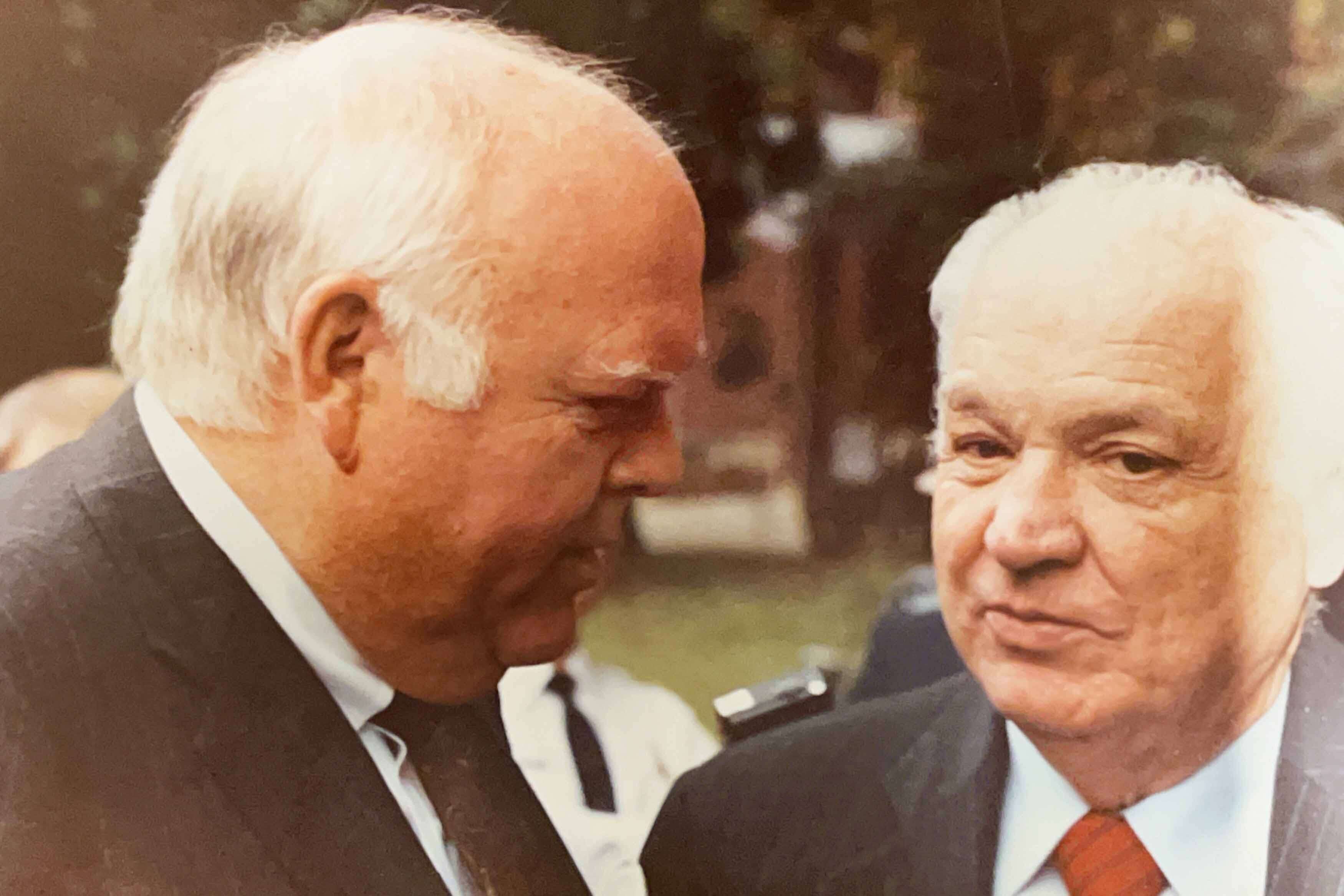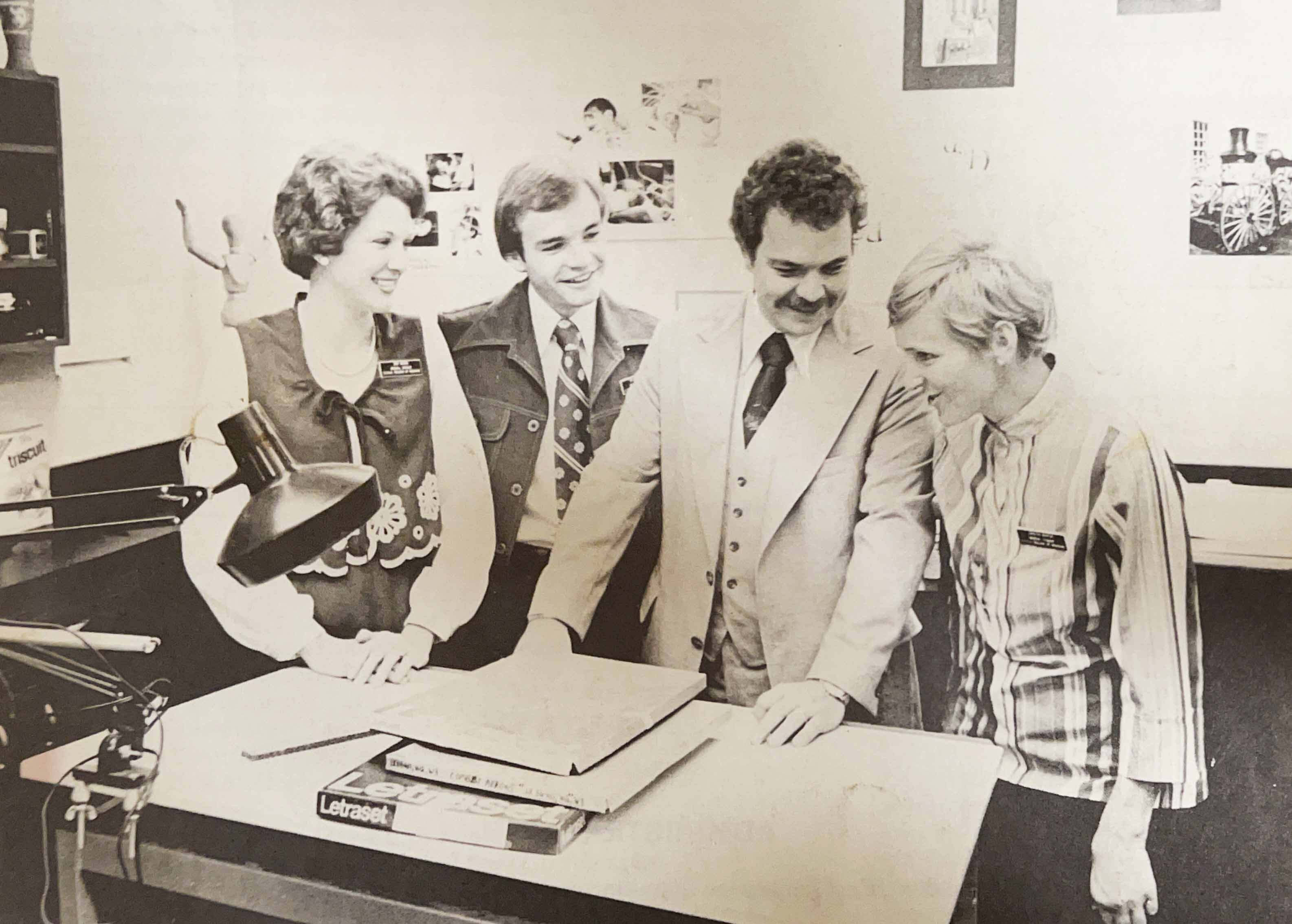History
Quillen College of Medicine at East Tennessee State University serves alongside the Gatton College of Pharmacy, college of nursing, college of clinical and rehabilitative health sciences and college of public health as the region’s premier health sciences center. In fact, only two universities in America can boast of the same mix of health care programs on the same campus.
In just three decades, the college has developed into one of the nation’s leading schools for rural and primary care medicine, an honor consistently recognized by the U.S. News and World Report.
Securing legislative approval of the college did not come without challenge, without controversy or without a fight. The battle to bring a medical school to East Tennessee is regarded by some as one of the most dramatic chapters in the history of Tennessee politics.
In the late 1960’s, one of the first meetings to discuss the idea of establishing a medical school on campus took place. In the fall of 1961, Burgin E. Dossett, president of East Tennessee State College began subtle lobbying for a medial school. The drive for a medical school gained additional momentum in 1963 when East Tennessee State College became a university. Three years later, in March of 1966, the first public announcement was made revealing the plans for obtaining a medical school in the Tri-Cities region.
 In 1968, Dr. D.P. Culp was appointed president of East Tennessee State University
with the goal of establishing a medical school. Dr. Culp understood that the help
of Congressman Jimmy Quillen would be vital if the dream for a medical school were
to be realized. He, alongside many others were able to solicit and secure his support.
Joining Congressman Quillen in the fight for a medical school at ETSU were:
In 1968, Dr. D.P. Culp was appointed president of East Tennessee State University
with the goal of establishing a medical school. Dr. Culp understood that the help
of Congressman Jimmy Quillen would be vital if the dream for a medical school were
to be realized. He, alongside many others were able to solicit and secure his support.
Joining Congressman Quillen in the fight for a medical school at ETSU were:
- Dr. D.P. Culp, ETSU President
- John Lamb, ETSU Dean of Health
- Ned McWherter, Speaker of the House
- P.L. Robinson, State Representative
- Gwen Fleming, State Representative
- Bob Good, State Representative
- Marshall Nave, State Senator
- Mark Hicks, Johnson City Attorney
- Dr. Charles Ed Allen, Johnson City Physician
- Carl Jones, Newspaper Publisher

 Congressman Quillen introduced a crucial amendment to the Teague Bill, one requiring
that any university to be considered for acceptance into this pilot program must be
on government property contiguous and adjacent to a VA hospital. The bill passed both
houses without a dissenting vote on Oct. 24, 1972, at 12:30 p.m. President Nixon signed
the Teague-Cranston Act on October 24, 1972 at 12:30 p.m.
Congressman Quillen introduced a crucial amendment to the Teague Bill, one requiring
that any university to be considered for acceptance into this pilot program must be
on government property contiguous and adjacent to a VA hospital. The bill passed both
houses without a dissenting vote on Oct. 24, 1972, at 12:30 p.m. President Nixon signed
the Teague-Cranston Act on October 24, 1972 at 12:30 p.m.
In Tennessee, Senator Nave called for consideration of the medical school legislation in the upper house on Feb. 14, 1974, which was approved. Four days later, the bill failed to get a majority vote in the lower house. State Representatives Robinson and Good called in their political chips, and on Feb. 28, the measure was passed. The bill was presented to Governor Dunn, and as expected, the bill was vetoed. Senator Nave and State Representative Robinson immediately made motions in their respective houses to override the governor’s veto. Once again, both sides called in favors and made promises of future support to sway the necessary votes their way.
The senate overrode with a comfortable 18-13 vote on March 6. The house needed only to follow suit to enact the law that would make a free-standing medical school at ETSU a reality. State Representative Robinson needed to collect at least 50 votes to supersede Governor Dunn’s veto. On March 12, 1974, the state legislature overrode the governor’s veto by a vote of 51-37, with the decisive vote being cast by Speaker of the House Ned McWherter.
 Victory for the region, higher education and improved health care had been achieved.
On Aug. 21, 1978, the first class of 24 students walked across the stage to be hooded
as medical doctors and graduates of the college of medicine. In attendance as commencement
speaker was The Honorable Ned McWherter.
Victory for the region, higher education and improved health care had been achieved.
On Aug. 21, 1978, the first class of 24 students walked across the stage to be hooded
as medical doctors and graduates of the college of medicine. In attendance as commencement
speaker was The Honorable Ned McWherter.
Founded in 1974 on a mission to train primary care physicians and to increase the number of doctors in rural communities, the Quillen College of Medicine, with more than 2000 graduates has remained true to its original mission. 35 years later, Fitzhugh Mullan published his innovative “social mission” research in the Annals of Internal Medicine, demonstrating that Quillen is ranked first in the nation for primary care graduates.
 The changes and innovations effected by the Quillen College of Medicine have encompassed
so much more than just the health care professions. It is unlikely that the individuals
who fought so hard to establish this college could have foreseen the level of growth
and expansion of the Tri-Cities region that has taken place. While the original dream
may have been achieved, the Quillen College of Medicine still promotes a vision for
the Tri-Cities that will continue to lead and guide this region far into the future.
The changes and innovations effected by the Quillen College of Medicine have encompassed
so much more than just the health care professions. It is unlikely that the individuals
who fought so hard to establish this college could have foreseen the level of growth
and expansion of the Tri-Cities region that has taken place. While the original dream
may have been achieved, the Quillen College of Medicine still promotes a vision for
the Tri-Cities that will continue to lead and guide this region far into the future.

 Sam Wilson West Parking Lot C...
Sam Wilson West Parking Lot C...